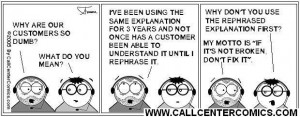Helping Small Businesses Help Themselves

I imagine most people cringe upon hearing that they have to attend “communication training” for work. Initially, I wasn’t too enthusiastic about it either. I pictured my supervisors doing role-plays and giving us a list of obvious rules to follow (e.g., don’t be rude, don’t be late, don’t be smelly). I didn’t mind going, as I quite like my supervisor and fellow interns. However, I didn’t have very high expectations either.
Despite my initial misgivings, my client communication training proved really enlightening; it taught me a lot about Green Plus‘ values and goals. For example, my supervisor explained that Green Plus wants to “help small businesses help themselves.” The goal isn’t to make a company more sustainable. It’s to support the company and help it incorporate sustainability into its culture. As such, client communication focuses heavily on relationship building, listening, and friendly guidance.
This is a lot different than I expected. I envisioned meeting with a client and telling them what he/she had to do to become Green Plus certified. That really intimidated me, as I’m new to the company; I didn’t feel like I knew enough about sustainability or Green Plus to give that level of instruction. However, Green Plus seems more interested in working with its clients, which I find very appealing.
I also really liked the communication training because it reinforced what I learned in Gordon Whitaker’s public management class. Dr. Whitaker’s class emphasized the importance of building trust with business partners through listening, openness, and understanding. I look forward to sharpening those skills with clients during my internship.

Last week, in addition to my communication training, I started work on new articles for the How To Guide. I wrote three, my favorite being an article on codes of ethics. During my research, I came across Business Ethics, an online “magazine of corporate responsibility.” The website maintains that sustainability is, among other things, an ethical issue. The site has a lot of interesting articles on sustainability, including this one on the Ceres Roadmap for Sustainability, a report that details the upcoming sustainability challenges—and opportunities—for businesses.
Last week afforded me some opportunities for socializing too. Bull City Forward (BCF) held a welcome lunch for the interns, giving us some time to get to know one another. We shared pasta and salad (I went straight for the brownies myself) and talked about the different kinds of work we’ll be doing this summer. It’s really neat how many different kinds of organizations can fit under one roof. BCF houses attorneys, business coaches, urban developers, a video production company, and a children’s book publisher, just to name a few. It was a lot of fun hanging out with such a diverse group.
Since I’ll be out of town next Monday, look for my next post in two weeks. I’ll discuss life at BCF, as well as my upcoming tour of The King’s Daughters Inn, a super sustainable hotel in Durham.



2 Responses to “Helping Small Businesses Help Themselves”
Mike Smith
Molly,
Interesting timing. We are doing communications training for all of our faculty and staff at the School this summer and early fall. Our focus is improved collaboration, which can’t happen without first-rate communication. Nice post.
Mike
Emilie Medical Alert Systems Reviews
I’m glad that the communications training turned out well for you. It sounded like the recommended approach entailed more listening and collaboration rather than convincing the other party of something.
It’s one of those skills that can benefit students from different schools, since we work or are going to work in organizations with people and clients.